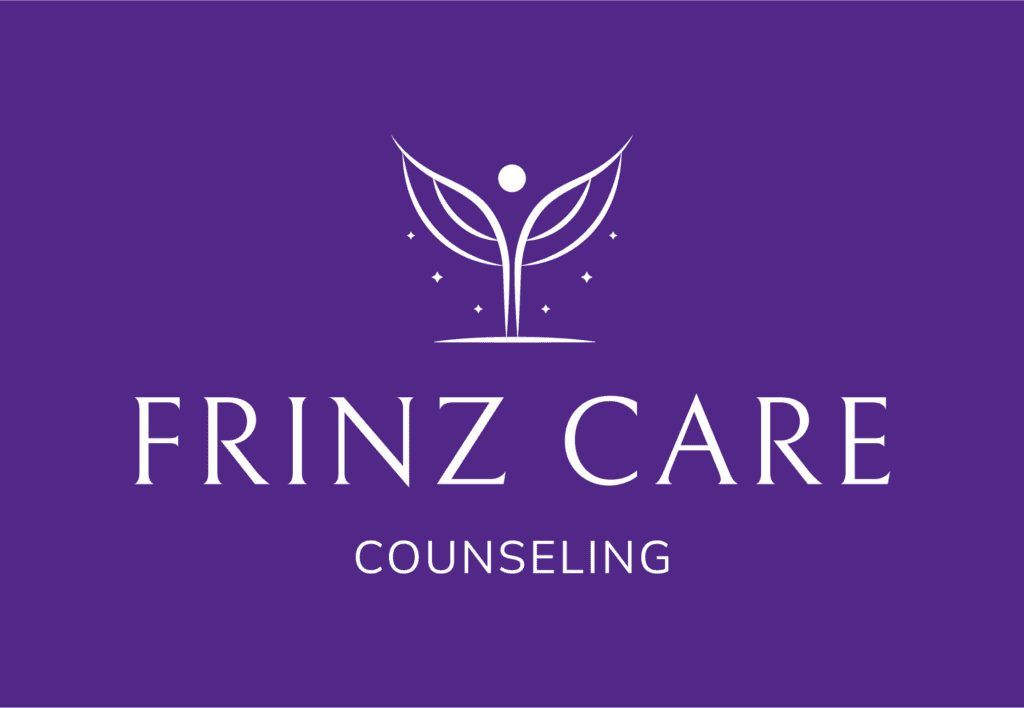Bipolar Disorder

Understanding Bipolar Disorder
Bipolar disorder is a mental health condition characterized by extreme mood swings, ranging from manic highs to depressive lows. Understanding the nuances of this condition is essential for effective therapy and overall well-being. At Frinz Care, we develop tailored therapy sessions that focus on your unique experiences, challenges, and goals. Together, we’ll explore strategies to manage mood fluctuations, enhance coping skills, and build resilience to build a plan for managing episodes with bipolar disorder.

Explore Virtual Mental Health Counseling Today!

Are you experiencing symptoms of bipolar disorder?
If you are struggling with bipolar disorder, you may be experiencing a combination manic and depressive behaviors. Bipolar disorder typically emerges in late adolescence or early adulthood but can occur at any age. It affects men and women equally, and its exact cause is not known, but it likely involves a combination of genetic, biological, and environmental factors. Medication is often recommended to treat bipolar disorders and supported by ongoing mental health counseling.
Experience Convenient, Online Counseling Today!
Manic symptoms:
– Feeling extremely happy or euphoric
– Increased energy and activity levels
– Racing thoughts and rapid speech
– Decreased need for sleep
– Impulsive behavior and poor judgment
– Grandiose beliefs or inflated self-esteem
– Increased irritability or agitation
Depressive symptoms:
– Persistent sadness or hopelessness
– Loss of interest in activities once enjoyed
– Fatigue or loss of energy
– Changes in appetite or weight
– Difficulty concentrating
– Feelings of guilt or worthlessness
– Thoughts of death or suicide

Types of Bipolar Disorder
It’s important to note that bipolar disorder is a complex condition, and these symptoms can vary from person to person. There are several types:
Bipolar I Disorder: Characterized by at least one manic episode, with or without depressive episodes.
Bipolar II Disorder: Involves at least one depressive episode and at least one hypomanic episode (a less severe form of mania).
Cyclothymic Disorder: Features periods of hypomanic symptoms and depressive symptoms that last for at least two years (one year in children and adolescents).


Bipolar Treatment
The treatment of bipolar disorder typically involves a combination of medication, psychotherapy, and lifestyle adjustments. It’s important to note that the specific treatment plan may vary based on the individual’s symptoms, the severity of the disorder, and their response to different interventions. Treatment is usually provided by a team of mental health professionals, including psychiatrists, psychologists, therapists, and sometimes social workers. Here’s an overview of the main components of bipolar disorder treatment:
Schedule Your Free Consult Today!
Psychotherapy:
- Cognitive-Behavioral Therapy (CBT): CBT helps individuals identify and change negative thought patterns and behaviors associated with bipolar disorder. It can be effective in managing both depressive and manic symptoms.
- Interpersonal and Social Rhythm Therapy (IPSRT): Focuses on stabilizing daily routines and addressing interpersonal issues, as disruptions in routine and relationship stressors can trigger episodes.
- Family-Focused Therapy Involves family members in the treatment process, helping them understand the disorder, improve communication, and provide support.
Lifestyle Adjustments:
- Sleep Management: Establishing and maintaining a regular sleep schedule is crucial, as disruptions in sleep patterns can trigger episodes. Adequate and consistent sleep is a key factor in managing bipolar disorder.
- Stress Reduction: Learning and practicing stress-reduction techniques, such as mindfulness meditation and relaxation exercises, can help manage stress, a common trigger for mood episodes.
- Healthy Lifestyle: Adopting a healthy lifestyle, including regular exercise and a balanced diet, can contribute to overall well-being.

Work with Frinz Care for Bipolar Counseling
Frinz Care is a group of experienced and compassionate therapists, committed to providing support, guidance, and a path toward mental wellness for individuals living with bipolar disorder. We create a safe and empathetic space for clients to explore their experiences, develop coping strategies, and work towards a balanced and fulfilling life.
We are here to support you on your journey toward stability and well-being. If you are ready to explore therapy for bipolar disorder, let’s get started on your journey to a healthier and happier YOU!


